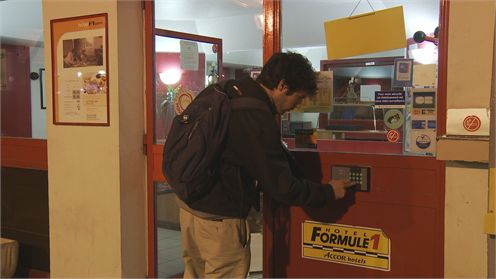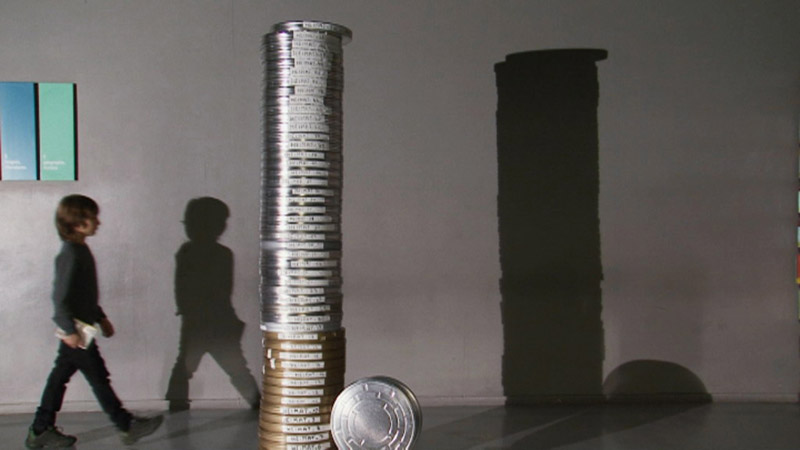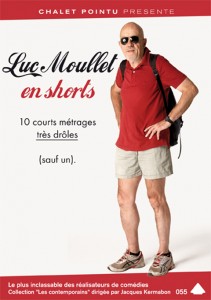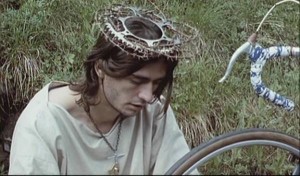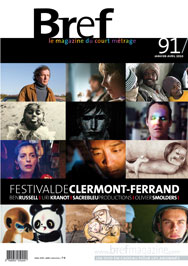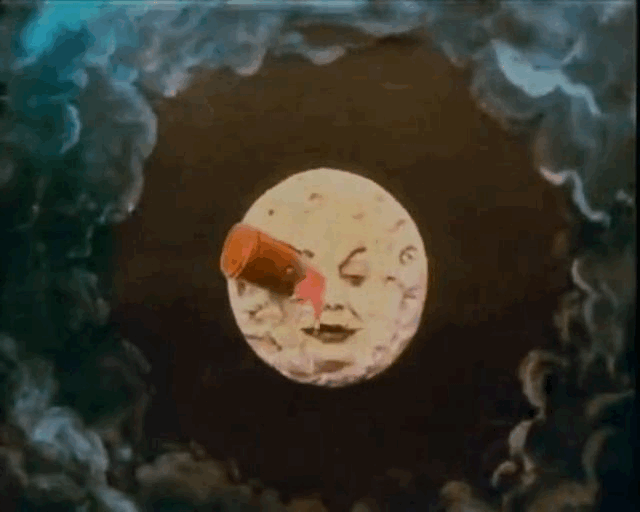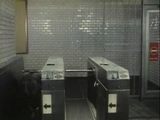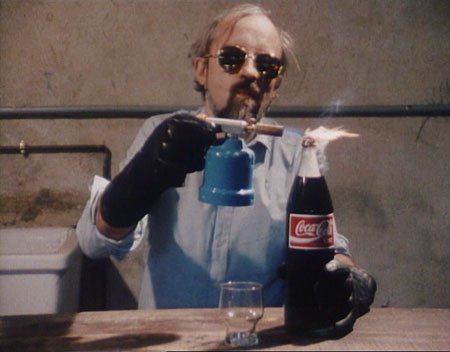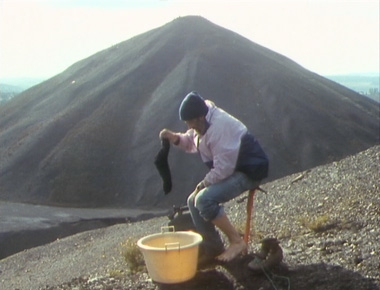From Cinema Scope No. 45, Winter 2011. -– J.R.
As a postscript to and short commentary on the closing section of Ted Fendt’s interview with Luc Moullet in the previous issue of Cinema Scope, l’d like to propose that (a) Moullet’s two most recent shorts, Toujours moins and Chef-d’oeuvre?, provide a kind of summary of Moullet’s work as a whole, by focusing respectively on economy and art, and (b) the second of these actually fuses these two concerns, offering not only a digest of his oeuvre as both a filmmaker and a critic, but also a short manifesto that exalts the importance of shortness itself in relation to his particular talents.
Moullet’s best work as a filmmaker can generally be found in his shorts — which makes it all the more regrettable that the Moullet box set with English subtitles includes only his features, and the sole collection of his shorts on DVD (Luc Moullet en shorts, 2009) is untranslated. The most important exceptions to this rule are Genèse d’un repas (1978), arguably his most profound statement about economy, and Anatomie d’un rapport (1976), but it might be added that many of his other best features, such as Les contrabandières (1968), La comédie du travail (1987), and Parpaillon (1993), are effectively collections of thematically related shorts, while some of his thinnest – – e.g., Le prestige de la mort (2006) — seem to qualify as padded shorts.
So it’s worth pointing out that Moullet features himself in the central panel of the opening triptych of Chef-d’oeuvre?, flanked on the left by Illustration of Athenian Poe Solon with Skull in Arm and on the right by a photograph of an Apollo II astronaut on the moon, while Moullet says offscreen, ‘A masterpiece is situated in the past after a lapse of time necessary for judgment, or in the future.” (At this point the Moullet in the middle panel disappears.) “It is not linked to current events. It is only recognized by posterity.” And, from there, even though there are some interesting remarks about how masterpieces in literature, painting, architecture, and music are identified and appraised, the principal exhibits in Moullet’s demonstration are cinematic.
Moullet’s special interest in shorts has been highlighted in his contributions to a fine but neglected French magazine devoted to short films, appropriately known as Bref, two shots of which pointedly appear, however fleetingly, in Chef-d’oeuvre? It culminates in this particular short in (a) a rapid montage of stills from several favorite shorts (including Marker’s La Jetée [1962]) and (b) a complete run-through of Georges Méliès’ Le voyage dans la lune (1902), complete with a pithy, DVD-style critical commentary by Moullet himself as it unfolds. His comments about various gags, eroticism, colonialism, pollution, and special effects highlight what he can do as a critic at the same time that his defense of the short film forms an implied rebuke both to the gargantuan lengths of Syberberg’s Our Hitler (26 reels), Lanzmann’s Shoah (29 reels), and Reitz’s Heimat (52 reels), flouted in some earlier sight gags, and to the masterpiece-mongering of Jean-Michel Frodon in Cahiers du Cinéma‘s Conseil des dix, presented in an equivalent mocking pan (“Lots of masterpieces this month,” Moullet notes dryly, without bothering to add that these are all features).
Paradoxically, while Moullet argues that you need to know the earlier paintings of Turner in order to properly appreciate one of his later masterpieces (and “the same with Godard”), an important part of the glory of Le voyage dans la lune and La Jetée, not to mention Moullet’s own Barres (1984), Essai d’ouverture (1988), Cabale des oursins (1991), Le ventre de l’Amérique (1996), and even Chef-d’oeuvre?, is how self-sufficient they are. And the same applies to many of Moullet’s best reviews.

